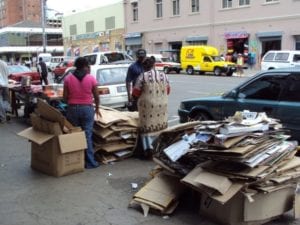eThekwini Municipality has announced developments that will revitalise Durban’s inner city and create models to absorb street dwellers and other vulnerable people into the mainstream economy.
The culmination of more than five years of research, the plans received the full support of the Durban Chamber of Commerce and key industry and business leaders at the Vulnerable Groups Workshop for Business & Civil Society hosted by the chamber. Darlene Menzies, who chairs the central committee of the chamber, said the strategies would unify the NGO sector, ensure the accreditation of all role players, provide one-stop training and job creation centres and increase the economic viability of marginalised people. Menzies said a huge injection of capital in the city was a certainty with the introduction of the Integrated Rapid Public Transport Network (IRPTN), which would enter its first phase by 2016 and be completed in 2026.The system would make affordable, safe and reliable transport accessible to 85% of the people (from 50%) and link communities with workplaces in the city. The municipality has outlined the challenges to businesses as a result of the growing number of homeless and vulnerable people on Durban’s streets.
These include: occupation of public open spaces and abandoned buildings; damage to infrastructure; poorly managed distribution of food by NGOs; begging on streets and at intersections; public intimidation; the sale of drugs; petty crime and prostitution. “The plight of our vulnerable people affects us all, and a sustainable solution needs a response from all of us – government, business and civil society,” states Menzies.






